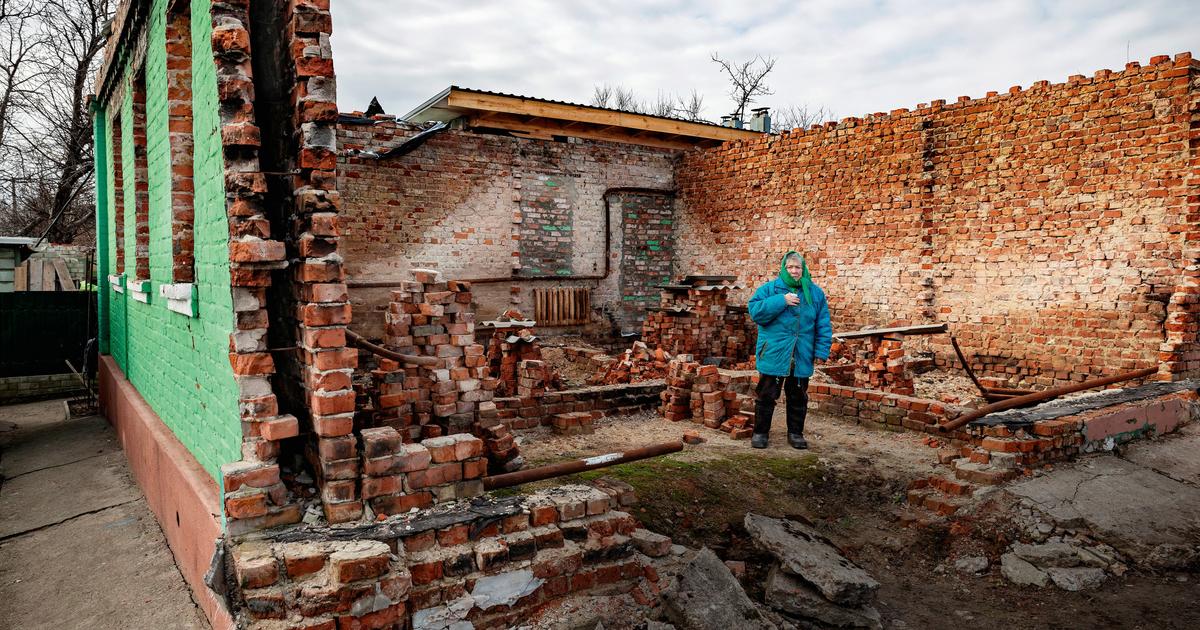Enlarge image
Author Gorelik: »We are brothers and sisters after all«
Photo: Catherine Hess / picture alliance / SZ Photo
I see news in German, English, Russian and Ukrainian, I see them in Russian in the hope of maybe spotting something behind the propaganda that I missed.
Something that - what?
– could explain, make understand?
See news in Ukrainian, although I understand contexts rather than literal language, why actually, with what hope?
Feeling closer, closer to the Ukrainians, dare I, sitting here in my living room in Munich, and they in bomb shelters, and they in fear?
What do you get from my supposed closeness?
Perhaps the greatest desperation of all: having to watch, being unable to do anything.
Immediately the reflex to delete this sentence: These days it is not about our despair and not about our pain.
This powerless inaction, ours, and that of the others who are also watching - the government, the EU, the US, NATO (although that might just be inaction, because they don't have to be powerless).
What must it be like to see these pictures too, from Berlin, Paris, Washington, and to know that when you look at them you make a decision: Not to intervene.
Or: only counteract this with sanctions.
There are no good words in any language to say: get through the day well, through the next few hours, through the next hour
And: to decide which sanctions to apply.
And which ones don't.
Watch, powerless, but don't faint, I think, and see myself lapsing into blind activism: tweeting?
Write to the decision-makers, beg, touch them, they want to do more?
Go to the rally?
Taking in refugees, but how do they get here?
Writing helplessly to the people in Ukraine with whom I communicate in Russian, because we have always done so.
There are no good words in any language to say: Get through the day well, through the next few hours, through the next hour;
passed out, how many questions is one question too many, and how do I phrase all these questions: "Are you okay?", "How are you?".
How are people supposed to fare in a country that has lost its order, the order of peace.
What makes this surreal war so real is that the images, the language, the ideas that I, that perhaps most of us have of war, have become present.
That they are no longer images from films about the Second World War, that the language no longer comes from history lessons, that the war, as I learned it in that same history lesson, first in the Soviet Union and later in Germany, is taking place today, while we sit in front of the television.
That we see explosions, destroyed houses, people fleeing, that we read terms like "tank attack", "mobilization", "heavy fighting", "shelling", that the war of today, in our Europe, is a war in that sense , in which I reenacted him in his propaganda-soaked childhood, steeped in memories of WWII: Here are the Germans, and here are us, the good guys, the Soviet Army, and that slide in the playground is our tank.
How naïve, how privileged that I should state today that war is war;
how presumptuous it was of us to believe that the war in Europe belongs in the history books.
Powerlessly reading the comments from Russia, those who are not in the state media, who sound desperate, lost, who ask about their own responsibility: "I never voted for him, but could we still have done something?".
"I'm ashamed," someone writes, and that hits me because he's suddenly naming something that I also feel inside.
Although I was eleven years old when I left Russia, although I was never entitled to vote in this country, although relatives accuse me when I come there every few years for a week or two, although I no longer know it: "You don't know our life, you look at us with your German eyes."
To be ashamed, although my head knows how national identity is formed, perhaps ashamed as a human being.
That we all allowed ourselves to look on for years as economic transactions were more important than the protection of human rights, because we were content to point the finger and be outraged.
Now we're hitting, now I'm clapping my hands in front of our faces, repeating like a mantra, like a prayer: "I don't believe it." Novaya Gazeta, one of the few remaining independent newspapers in Russia, is published in two languages on Friday , in Russian and Ukrainian, immediately brought tears to my eyes like Thursday when I saw (and watched again and again) the videos of people being taken away for peacefully demonstrating against a policy that has the antonym of »peaceful " is.
"We're brothers and sisters after all," Russians write in their powerlessness, also a feeling I know while realizing: Wasn't it the Soviet Union that impressed that on me?
And in doing so very successfully every national Ukrainian consciousness, every cultural tradition that suppressed language, until we children no longer questioned why our Ukrainian friends spoke Russian so naturally?
Impotent and powerless
»We are brothers and sisters after all.« I ask myself, is it ok for Russians to form this sentence, then it occurs to me while I am trying to understand Volodymyr Zelenskyj today: I remember the sound of Ukrainian me from my childhood only from songs that were sung further, in my memory they are melancholic and happy at the same time, without there being any contradiction in them, and I credit them, these songs, they held Ukraine tight, preserved imperial Soviet thinking despite the language.
Think about it, then the phone vibrates: Another explosion in Kiev.
Powerless reading what today is actually the same as yesterday.







